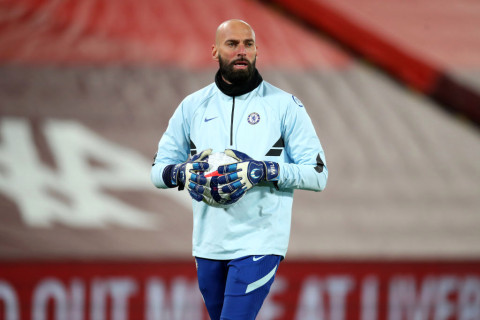
Chelsea goalkeeper Willy Caballero has explained how the club’s approach has changed under Thomas Tuchel compared to life under Frank Lampard.
The Argentine keeper has played just two games for the Blues this campaign and is yet to be handed any start under Tuchel.
His last appearance for Chelsea came in a 3-3 draw with West Bromwich Albion at the end of September, with Edouard Mendy and Kepa splitting the goalkeeping duties ever since.
Lampard was sacked in the January transfer window after a couple of poor results, with former Paris Saint-Germain and Dortmund coach Tuchel replacing him.
He is yet to taste any defeat as Chelsea boss, and the German has guided the Blues into the top-four as well as the semi-finals of the FA Cup and the quarter-finals of the UEFA Champions League.
Tuchel has also installed a different style of play compared to what Caballero describes as Lampard’s ‘dizzying’ football and he explained the differences between both approaches.
‘Obviously talking about the coach, what one does well and what the other does well, is uncomfortable,’ Caballero told 90min.
‘Because they are there for something. If we have to have them as coaches, it is because they are good. They convince you of the football they want to carry out and we are the workers, the ones who carry out that plan.
‘Undoubtedly, with Frank, we had a more direct idea of the game, basically English football. To attack fast, attack on the wings, move centrally or attack on one side and finish on the other but with quite a bit of verticality.
‘The football he liked was very dizzying, with quick movements of the ball. He also liked attacking and counter-attacking.
‘Now with Tuchel, it’s more about combining, playing with the ball. We create more. He almost tells us how the match will develop, where the opponent’s key aspects are, their strengths and their weaknesses.
‘With his ideas, from how he has achieved his teams to play well, he says to us what players we would need to be more involved in order to play brighter and follow his plan. Sometimes it works, sometimes it doesn’t, but the idea of playing [is there].’

Leave a Reply